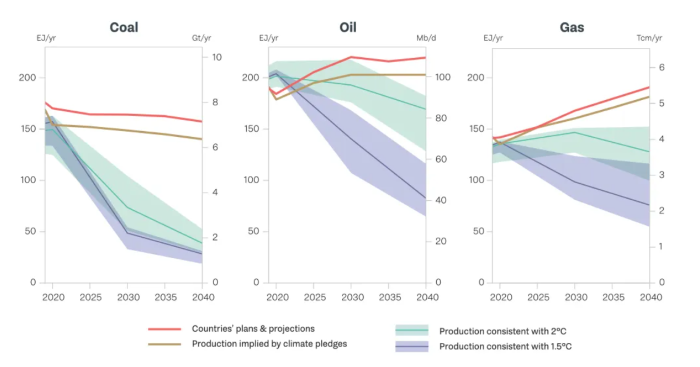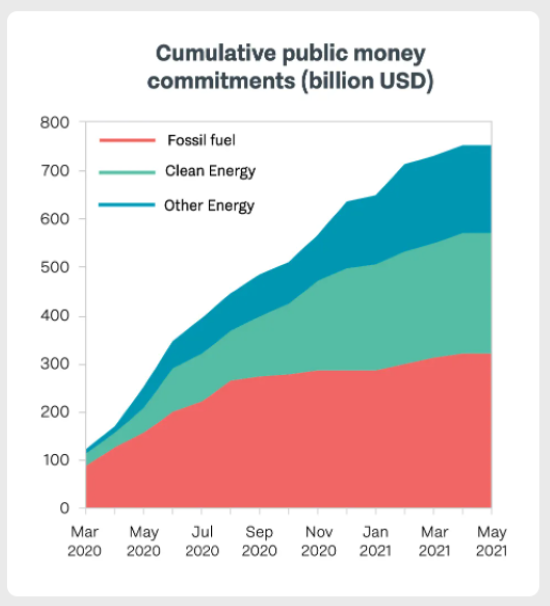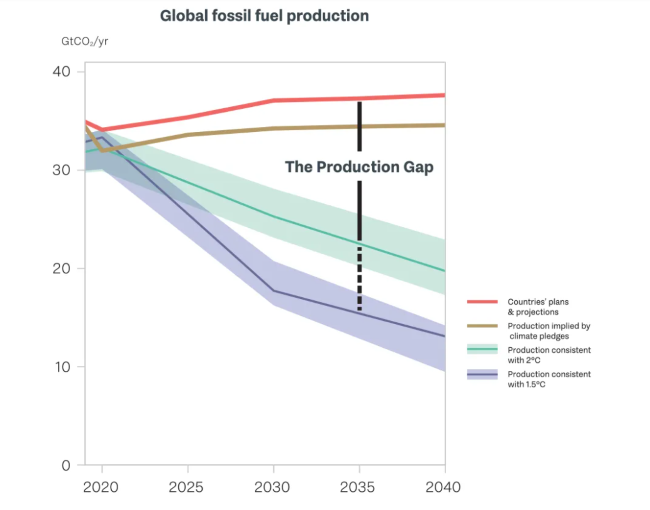
Despite their public pronouncements on climate change and net-zero targets, nations will produce more than double the amount of fossil fuels in 2030 than what is consistent with the global warming limit of 1.5°C above the pre-industrial levels.
The governments will raise oil and gas output in the next 20 years, while effecting a small decrease in coal output, says the 2021 Production Gap Report by the UN Environment Programme (UNEP). This means the expected cut in the output of fossil fuels is not happening at least till 2040. This means world leaders converging at Glasgow later this month for COP26, the United Nations climate change negotiations, will need to take urgent steps to close the fossil fuel production gap.
“The governments are planning to produce around 110% more fossil fuels in 2030 than would be consistent with limiting global warming to 1.5°C, and 45% more than would be consistent with limiting warming to 2°C,” says the report. By 2040, the excess output will rise to 190% and 89%.


READ I Cryptocurrency rush: Bitcoin rally forcing the sceptics to rethink
India leans on coal for power generation
The report says India’s nationally determined contributions promises a 33–35% cut in carbon emissions intensity by 2030, compared with the 2005 level. The country looks to achieve an installed capacity of renewables and nuclear energy that is around 40% of its total capacity. However, the country plans to invest Rs 500 billion in coal mine infrastructure that goes against the grain of this commitment. India looks to expand coal production by more than half by 2024 to 1,149 million tonne. It also plans to raise its oil and gas production by 40% during the period.
The report has country profiles of 15 major producer countries that show most of them support fossil fuel production. These countries are the United States, China, India, Australia, Brazil, Canada, Germany, Indonesia, Mexico, Norway, Russia, Saudi Arabia, South Africa, the United Arab Emirates, and the United Kingdom. The profiles give a roundup of each nation’s climate ambitions, views, projections, support for fossil fuel production, as well as emerging policies towards a cut in production.

READ I COP26 Summit at Glasgow: Humanity races against time on climate change
Fossil fuel output to rise across the world
Global gas output is expected to increase between 2020 and 2040, which is inconsistent with the targets set by Paris Agreement for temperature increase limits. The governments have earmarked more than $300 billion fresh funds for fossil fuel activities since the Covid-19 outbreak — a amount higher than what they have set aside for clean energy.
Global finance for fossil fuel production in G20 nations from multilateral development banks has fallen in recent years. A third of MDBs and development finance institutions have embraced policies that exclude fossil fuel activities from their future finance plans.
UNEP has produced this report along with International Institute for Sustainable Development (IISD), Overseas Development Institute (ODI), E3G and the Stockholm Environment Institute. The research was conducted by more than 40 researchers from several universities, research organizations and think tanks.
Leaders of more than 100 nations will reach Glasgow later this month for COP26 summit beginning on October 31. The 195 countries that are part of the Paris Agreement have given assurances to cut green-house gas emissions by 2030. Most of them have accepted firm targets to achieve net-zero emissions. The UNEP report is expected to be discussed at COP26 and the leaders may accept tougher targets for greenhouse emissions based on its findings.

